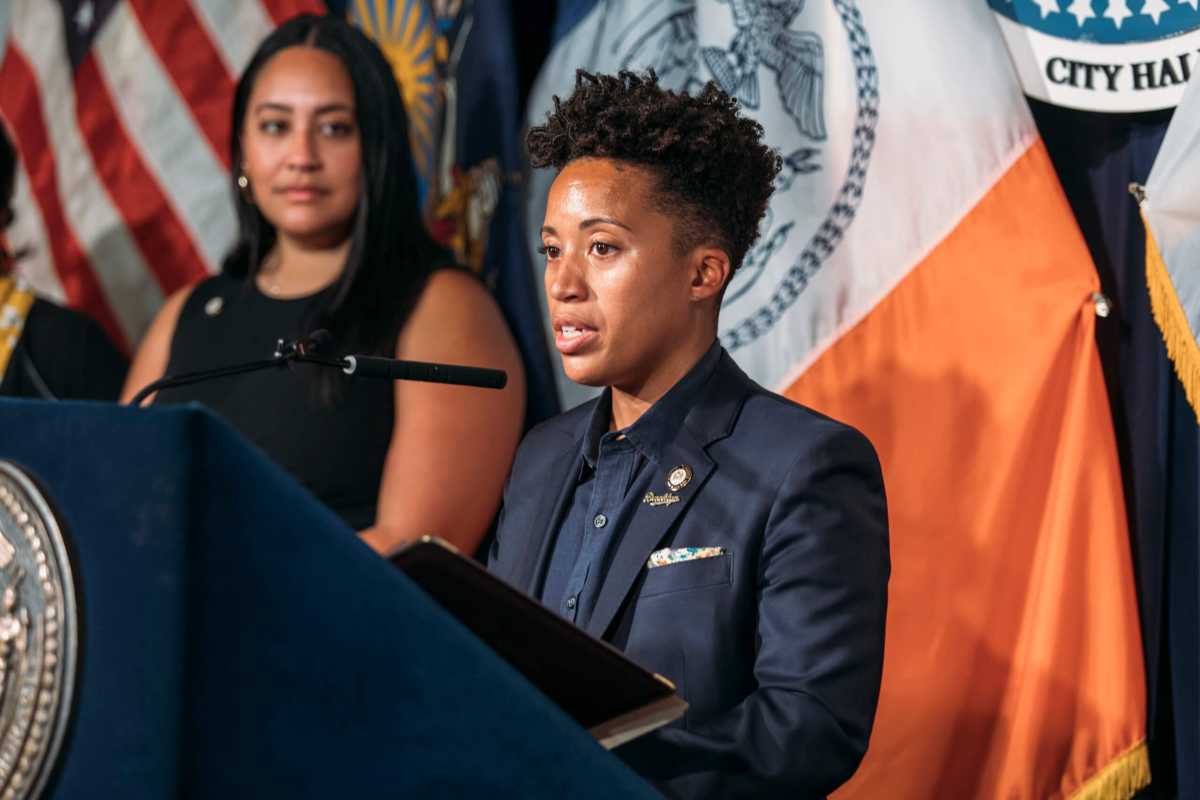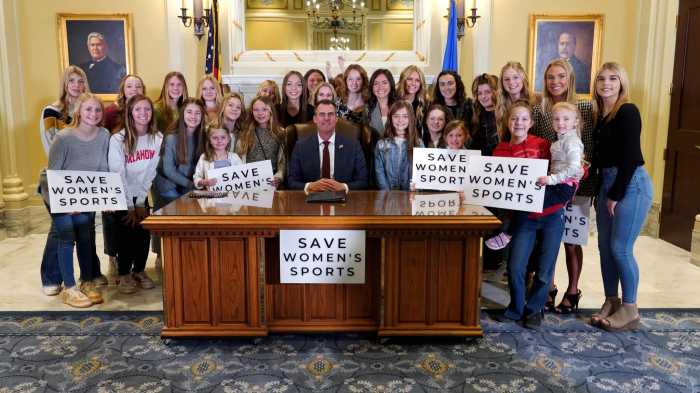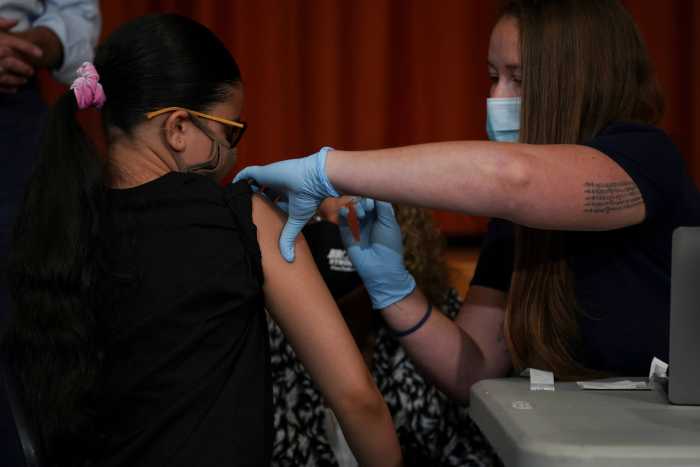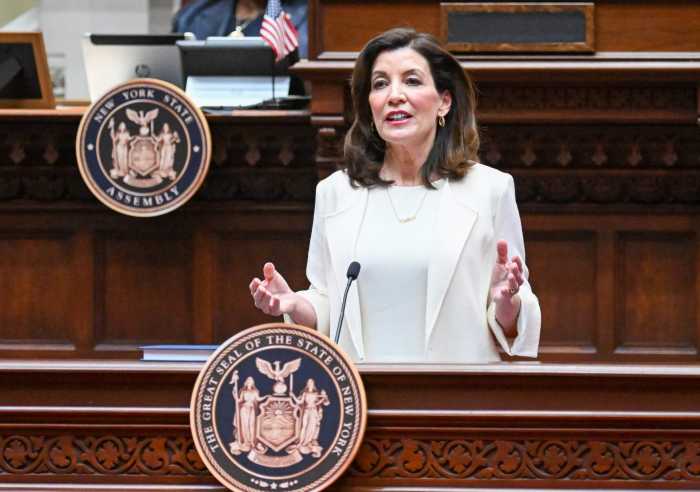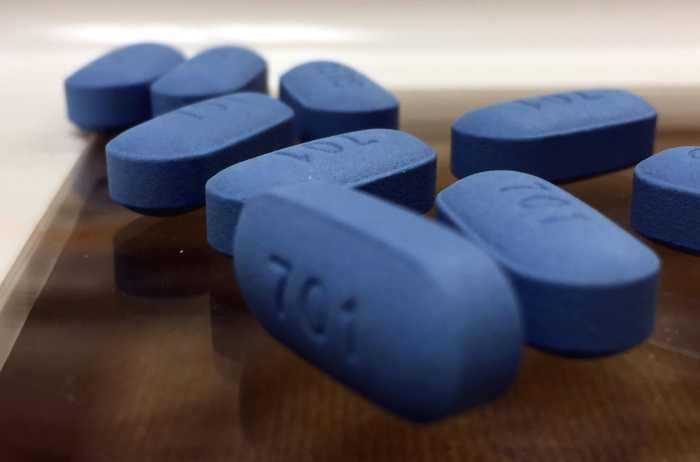Members of the City Council’s LGBTQIA+ Caucus stood alongside advocates at City Hall on August 11 to introduce multiple bills intended to improve the New York City Department of Health and Mental Hygiene’s response to the monkeypox outbreak.
The legislative package — a joint effort by the entire LGBTQIA+ Caucus — includes two bills focused on new requirements for the Department of Health as well as a broader resolution calling on the US Department of Health and Human Services (HHS) to increase vaccine supply and to distribute the doses in an equitable way.
Notably, equity is a consistent theme throughout the entire legislative package. One of the bills would require the Department of Health to establish a plan to fight monkeypox through multiple avenues: Firstly, city health officials would be tasked with creating an outreach plan focused on prioritizing vaccine doses for those who are at greater risk of contracting monkeypox — and that includes incarcerated individuals and those living in shelters. Secondly, the bill would require the city to come up with a vaccination hub to allow folks to schedule appointments for multiple vaccines, including COVID-19 and monkeypox, all in one place.
That bill would also require the Health Department to adjust hours of operation and location of vaccination sites depending on the needs of those who are most at risk.
“The legislation introduced in this package seeks to remedy the systemic shortcomings that have hindered our ability to respond to this public health emergency effectively and efficiently,” LGBTQIA+ Caucus Co-Chair Crystal Hudson of Brooklyn, the lead sponsor of the first bill, said at the podium.
The Health Department has already limited vaccine eligibility to gay and bisexual men, other men who have sex with men, and non-binary, transgender, and gender non-conforming people who are 18 or older and have had multiple or anonymous sex partners in the past 14 days.
As of August 11, statistics show monkeypox continues to overwhelmingly impact men who have sex with men in New York City — and it’s not even close. Men have made up 1,938 of 2,039 total cases, followed by 32 cases among transgender and non-binary individuals and 11 among women. Another eight cases are listed as “unknown” in the gender category. Just 77 of the 2,039 cases thus far have been among people who identify as straight.
By race/ethnicity, Hispanic individuals have accounted for 595 cases, followed by 550 cases among white people, 498 cases among Black people, and 74 cases within the Asian/Pacific Islander population. There are 253 cases without race/ethnicity information and 19 cases have been classified as “other.”
Statistics have also indicated that vaccine distribution has not always been equitable on the basis of race. In Chicago, for example, white people have received 54% of doses despite the fact that Black men make up more than 80% of cases, according to Bloomberg.
“As we pressure Washington to immediately distribute vaccines to our highest risk neighbors, we need to do much better on a local level as well,” said LGBTQIA+ Caucus Co-Chair Tiffany Cabán. “Our affluent white neighbors must not be the only New Yorkers with access to vaccines.”
To that end, the second bill unveiled by the Council would require city health officials to provide greater transparency by publishing current information on monkeypox vaccination and cases. The Health Department would also need to show the demographics of those who have been vaccinated. Councilmember Chi Ossé, who was not in attendance at the press conference at City Hall, carries that legislation.
“It is essential that the Council recognizes the urgency of the moment and passes these bills swiftly so that the City can arm itself with the necessary tools to win this fight with minimal harm, before it’s too late,” Ossé said in a written statement.
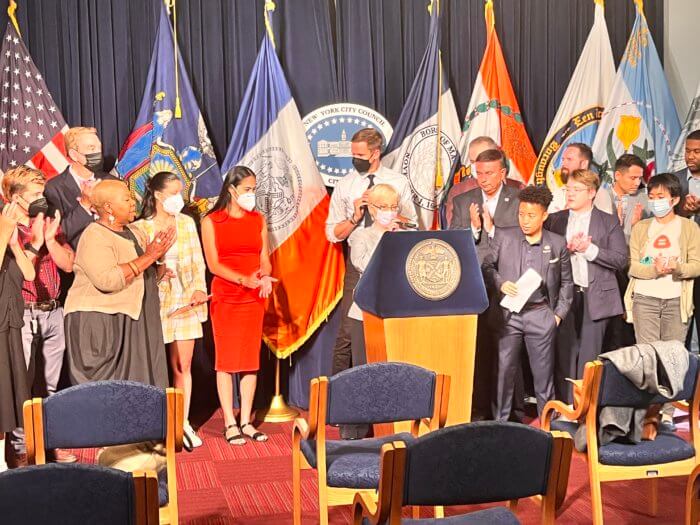
When asked by Gay City News if there have been discussions with the mayor about the legislation, Councilmember Lynn Schulman of Queens, who chairs the Council’s Health Committee, said she has “had a little bit of conversation” with the Adams administration and “they want to work with us on the legislative package.”
Patrick Gallahue, a spokesperson for the Health Department, told Gay City News the agency will “review” the bills — and he further pointed to previous interviews when Health Commissioner Aswhin Vasan emphasized equity. During a one-on-one interview with Gay City News last month, Vasan repeatedly mentioned the importance of maintaining equity and fighting stigma, and he cited the city’s plan to allocate vaccine doses to community-based organizations.
However, when pressed by Gay City News on July 12 about demographic-related statistics on monkeypox, Vasan said, “It’s less about identity than it is about behaviors, which is why we include trans, gender non-conforming, and non-binary people in our inclusion criteria for vaccine.”
The third and final piece of the package — the resolution directed at HHS — has a localized focus, even as it involves a federal agency. City lawmakers are encouraging the federal government to ramp up vaccine distribution at a time when New York City has, according to the Council, received just 12% of doses despite leading the nation in cases.
“The United States government, which owns millions of doses of monkeypox vaccine, failed to have those vaccines bottled until it was too late,” said Councilmember Erik Bottcher of Manhattan, who commended the work of LGBTQ public health activists who urged the federal government to move quickly.
“[The federal government] ignored the advice and that’s why this outbreak is out of control,” Bottcher added.
Advocates on hand at the press conference welcomed the legislative package. Soraya Elcock, who serves as Hetrick Martin Institute’s chief strategy officer, said she agreed with lawmakers that the plan to confront monkeypox must be rooted in education, information, and stopping the spread. LGBTQ youth who have felt the impact of COVID and HIV/AIDS, she said, are “afraid” and “exhausted” that they will be blamed for yet another outbreak.
New Pride Agenda executive director Elisa Crespo also applauded the legislative package — including for the focus on transparency — and she stressed that the city must be mindful that sex workers and incarcerated people face elevated risks during the outbreak.
Among other bills introduced on August 11 included one from Speaker Adrienne Adams to require the Department of Environmental Protection and the Department of Health and Mental Hygiene to test wastewater for viruses that cause COVID-19, monkeypox, and other infections labeled as a public health emergency.

